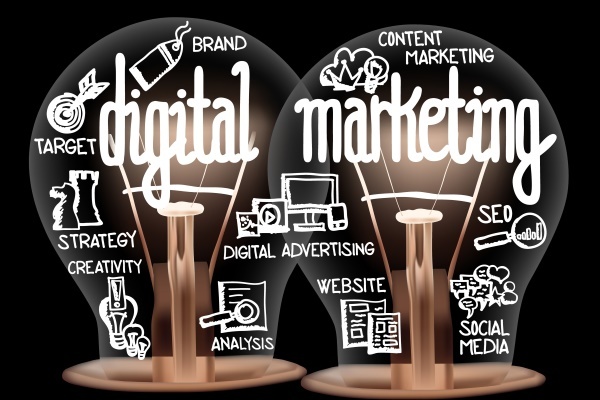
Helping businesses to understand their digital landscape?
A digital landscape is a collective name for websites, email, social networks, mobile devices (tablets, iphones, smartphones), videos (YouTube), etc. These tools help businesses sell their products or services.
In the world of business there is a smarter and more nimble competitor just around the corner with a better use and understanding of technology about to steal your market. Understanding your entire digital landscape can ensure you are not only keeping and eye on the competitoin, but that you are also keeping your digital assets up to date.
We are living in a digital era, almost everything can be done online (from shopping to banking, to work and socialising). More and more of our lives depend on digital services.
How can you ensure your business stays on top?
One simple way of ensuring your business stays on top is to link your Business strategy to your IT strategy. A business strategy is the vision for your company, the IT strategy is anything relating to technologies and how you plan on using them within your organisation.
It is essential for any successful business to ensure its strategies work in unison and harmony. Aligning business and IT strategies within a business or organisation is not a new idea.
5 Key areas to follow when aligning business and IT strategies:
- Understand how the business makes money and where it is positioned within the market place
- Understanding of how IT and systems impact profits
- Understanding customers/clients and their habits
- Understanding and becoming truly customer centric
- Understanding cost economies.
The roles within IT have shifted over the last 10 years. IT started in a traditional form (someone with computer knowledge and/or repair skills), to present which serve a variety of roles from web designers, data analytics, digital leaders, cloud specialists, cyber security experts to repair technicians.
Within the technology world there is serious cause for concern that there will soon be a shortage of experienced and qualified specialists in every aspect of the IT field. Digital leadership is an area showing a significant shortage (those with the right mix of business and IT skills).
Smaller businesses are suffering with Managing Directors taking on the role of business and IT Manager. A large number Managing Directors don’t have the time readily available to review new technologies, strategies or analyse results.
Statistics show in 2014 businesses spent on average 25% of their total marketing budgets on digital (the remaining budget was spent on marketing staff, customer relationship management, investments paid to agencies and other outside suppliers, advertising costs and media spend). These figures are projected to jump 75% over the next five years, having jumped a further 17% in 2015.
Digital marketing activities are increasing at a phenomenal rate. Digital marketing is a new skill following the worldwide web evolving rapidly over the last 15 years. Digital marketing has proven to have a positive impact all levels. Only those with experience and knowledge will be able to analyse the vast amounts of data generated by digital marketing activities and translate that into tactics and strategies in layman’s terms.
Social media has transformed consumer behaviour.
92% of all successful companies invested in social media in 2015. Social media is an indispensable way many companies:
- market their product/services
- increase brand recognition
- interact and connect with their customers
- interact and connect with other organisations
- answer & assist customer queries (response time can be immediate)
- carry out market research
Social media tools which are currently trending are:
- YouTube
- Tumblr
- Tiktok
- clubhouse
Attached is an Article from the Entrepreneur which lists the top 20 Social Media Tools to Add to Your Arsenal in 2016 https://www.entrepreneur.com/article/254712.
Don’t be afraid with digital. It’s here for the long haul. Become the digital leader in your organisation:
- Experiment
- Understand how technology is evolving and translate that into your business
- Develop and implement new digital capabilities (staff training)
- Understand IT lingo, become digitally fluent
- Review practices and change where necessary.






